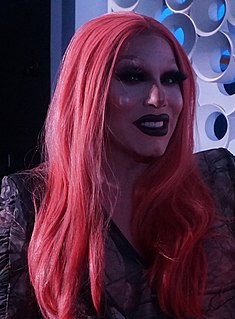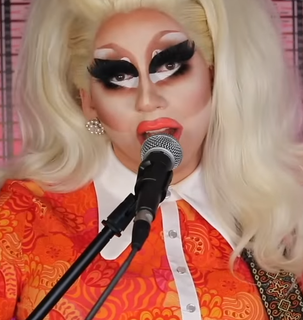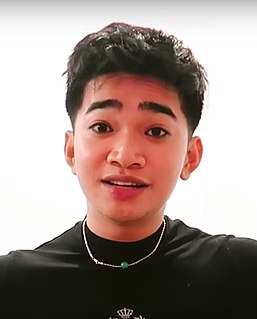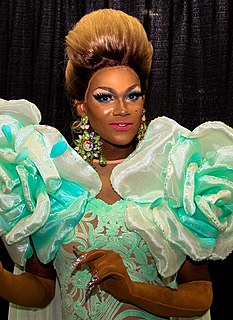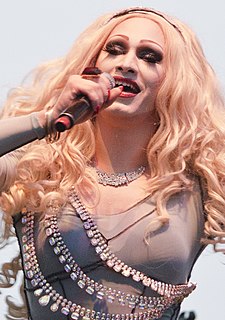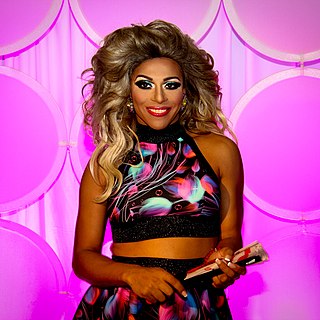A Quote by Sharon Needles
I come from what we call the pre-'Drag Race' drag world where I didn't start doing this with aspirations of being a reality television star, or this going any further than the small smoky bars of Pittsburgh.
Related Quotes
I feel like I am just an entertainer. It does not matter what form I take to perform and entertain. I think I deserve being called a performer because you don't call Tyler Perry a drag queen. You don't call Will Smith a drag queen and all the other mainstream artists who use the aesthetic of drag to entertain.
I guess drag queens, by nature, have to do everything. When you start being a drag queen, you're grabbing the microphone, hosting the shows. Then, you're setting the microphone down and doing the number. You're spending the day before doing your wigs and sewing your costumes. You're doing everything.
